Update - 4:00 pm Eastern:
Back on the stand following the lunch break, former Trump aide Hope Hicks testified that she heard Trump and Michael Cohen having a discussion regarding the Wall Street Journal story, though there was nothing memorable about the call. She was in a car with Trump and Reince Priebus at the time, traveling to a rally in Hershey, Pennsylvania.
The quote Hicks gave to the WSJ for the story was that it was “absolutely, unequivocally" untrue that Trump had a relationship with Daniels. She testified this was what he had asked her to say. Hicks testified that Trump was concerned about how his wife, Melania, might view the story, and he wanted Hicks to make sure the newspapers were not delivered to his residence that day.
Hicks testified that everything discussed in that time period was in reference to whether it would have an impact on the campaign. After the election, Hicks had a role on the transition team and then worked in the White House. Eventually, she became the White House communications Director.
Hicks described the outer oval office where she worked, noting that it is a very small space. Trump‘s executive assistant, Madeleine Westerhout, also sat in that area. On the day that Karen McDougall sued AMI, Westerhout texted Hicks noting that Trump wanted to know if she had spoken to David Pecker. Hicks testified she does not recall speaking to Pecker.
Hicks testified that Cohen told her the story of the $130,000 hush money payment to Stormy Daniels was not true, that no payment had been made and no relationship had occurred, and that he had documentation to prove no payment had been made.
Hicks was asked about a 2018 Wall Street Journal story regarding the purported payment and quoting an anonymous White House source. She denied that she was that source and speculated that it was Hogan Gidley, a former White House spokesperson.
The only time she heard Trump speak about the payment to Daniels was after Cohen gave a statement to the New York Times, indicating that he had, in fact, made the payment without Trump's knowledge. She thought that out of character for Cohen, adding, “I didn’t know Michael to be an especially terrible person or selfless person."
Prosecutor Matthew Colangelo concluded his direct examination of Hicks, and Emil Bove began cross-examining her. As soon as Bove began with, “I want to talk to you about your time at the Trump organization," Hicks began tearing up. The court took a short break.
Upon resuming her testimony, Hicks apologized. She confirmed that she felt she had Trump’s trust and respect.
According to Hicks, Cohen attempted to insert himself into the presidential campaign in 2016, although he was not supposed to be serving in that type of capacity. She characterized his behavior as fancying himself as a fixer.
When asked about Trump’s concern regarding the McDougall story and its potential impact on Melania Trump, Hicks testified, “President Trump really values Mrs. Trump‘s opinion, and she doesn’t weigh in all the time, but when she does, it’s really meaningful to him and, you know, he really really respects what she has to say."
Bove asked Hicks about her prior testimony regarding a reference to Stormy Daniels she overheard on Trump’s plane in 2015. She clarified that that was in relation to a supposed relationship with Pittsburgh Steelers Quarterback Ben Roethlisberger.
When asked by Bove about Trump‘s request not to have the newspapers delivered to the residence on November 4, Hicks agreed that there were aspects of this that were very personal to him, noting, “Absolutely. I don’t think he wanted anyone in his family to be hurt or embarrassed by anything that was happening on the campaign trail. He wanted them to be proud of him."
The court broke for the day. Trial will resume on Monday.
Update - 2:00 pm Eastern:
The testimony of former Donald Trump aide Hope Hicks continues. She testified that she reached out to former Trump attorney Michael Cohen regarding rumors she heard about another possible tape that could be a problem for the campaign. According to Hicks, there was no such tape, but Cohen assisted in running that down. She testified that Trump was worried reports regarding his behavior with women could affect his standing with voters. Hicks affirmed that Trump‘s Twitter account was critical to his campaign and that he posted his own tweets or approved tweets prepared by staffers.
Hicks first heard about Karen McDougal when she was contacted by the Wall Street Journal on November 4, 2016, four days prior to the election. She had heard of the Stormy Daniels story previously when security guys on Trump‘s plane in 2015 were talking about a celebrity golf tournament and Daniels' name was mentioned.
Hicks believed she mentioned the email from the Wall Street Journal to Trump before an Ohio rally. She forwarded the email to Jared Kushner due to his relationship with Rupert Murdoch, in an effort to buy a bit more time to respond.
She called Cohen because she knew he had a relationship with David Pecker, former publisher of the National Enquirer. According to Hicks, Cohen acted like he was not sure what she was talking about, so she then contacted Pecker, who described the arrangement with McDougall as legitimate and for magazine covers and fitness columns.
Hicks drafted a response to the WSJ and then sent it to Cohen for review. He suggested a response:
“These accusations are completely untrue and just the latest despicable attempt by the liberal media and the Clinton machine to distract the public from the FBI‘s ongoing criminal investigation into Secretary Clinton and her closest associates."
Hicks also testified to a phone call where she and Trump called Pecker together. Trump wanted to craft his own statement rather than use the one she (and/or Cohen) suggested.
The WSJ reporter also told Hicks that Stormy Daniels would be mentioned in the story. Trump wanted to know more about the context of that. "He wanted to make sure that there was a denial of any kind of relationship," she testified.
Hicks: He did not want to use the statement we had drafted, he wanted to write his own - a denial and that we didn't know anything about this deal.
— Inner City Press (@innercitypress) May 3, 2024
Prosecutor: When you learned that Stormy Daniels would also be in the story, did you talk with Mr. Trump?
Yes
The court is now on a lunch break.
Update - 1:00 pm Eastern:
(There's been a lot of information brought out during the testimony of Hope Hicks, so I will do my best to distill it here.)
Former Trump assistant, Hope Hicks has taken the stand. She acknowledged that she was nervous when she began to testify. Matthew Colangelo is conducting the direct examination for the prosecution. She is testifying pursuant to a subpoena. Her last contact with Trump was in the summer or fall of 2022. She currently has no professional relationship with Trump.
In 2014, she was the Director of communications for the Trump organization, working primarily with public relations and marketing. She then transitioned into more politically related work. She began working more closely with Trump at that point, and described him as a very good multitasker and a hard worker. Frequently, she was in his office during meetings. By 2015, she spoke with Trump every day, whether by phone or in person. She described the Trump organization as being run like a small family business, despite its size.
Hicks testified that Trump had a close relationship with Keith Schiller, the director of security for the Trump Organization who later became Trump‘s deputy assistant, and director of Oval Office operations once Trump assumed the presidency. In her role, Hicks was familiar with Trump's children, as well as his longtime assistant, Rhona Graff, and former Trump Organization, CFO Allen Weisselberg. According to Hicks, Weisselberg helped prepare the financial disclosure. Trump needed to provide in connection with his presidential campaign. She describes Weisselberg as a trusted person in the organization. She was not entirely sure what work Michael Cohen did for the organization.
Hicks learned of Trump‘s presidential campaign plans when he announced in January 2015 that they were going to Iowa. She initially thought he was joking when he said she would be the campaign press secretary. Hicks describes Trump as very involved in the campaign, testifying, “He knew what he wanted to say and how he wanted to say it. We were all just following his lead." During the campaign, Hicks traveled with Trump almost every day. She checked with him before making statements to the press.
Hicks testified she knows David Pecker as the publisher of American Media. She described him and Trump as friends. She was present for call phone calls between them, including regarding a piece published by the National Enquirer regarding Ben Carson. She does not recall if she was present during a meeting between Pecker and Trump in August 2015.
She first became aware of the "Access Hollywood" tape after receiving an email from a reporter on October 7, 2016, seeking comment regarding it. She identified the email and it was offered into evidence. She testified that she was concerned about the contents of the email and the lack of time to respond. She forwarded the email to Kellyanne Conway and Steve Bannon, along with Jason Miller and David Bossie. She reviewed notes that she sent to other campaign leaders regarding the tape, which included a strategy of denial – "Deny, deny, deny."
The Trump campaign team was preparing for a debate at the time. She recalls that Trump was upset when he learned of the tape. He said it didn’t sound like something he would say, and wanted to see the tape to be sure. There was a consensus among the campaign that the tape was damaging and it was a crisis situation. Hicks also said while Trump didn’t want to offend anybody, she thought he felt like it was pretty standard stuff for two guys chatting with each other. She read back the campaign statement regarding the tape:
"This was locker room banter, a private conversation that took place many years ago. Bill Clinton has said far worse to me on the golf course – not even close. I apologize if anyone was offended."
Hicks was present as Trump’s video response to the situation was prepared. She recalls Republican leaders, like Paul Ryan and Mitt Romney, releasing critical statements regarding the tape.
Update - 11:30 am Eastern:
With Douglas Daus still on the stand, Trump attorney Emil Bove drove home the issues surrounding the reliability of information obtained from former Trump attorney Michael Cohen's phones.
Trump attorney Emil Bove says Douglas Daus is looking at evidence from 2016 with all of these intervening events between the files and when he obtained Michael Cohen's phone in January 2023.
"They present questions about the reliability of the evidence," Bove says.
"It would seem so," Daus testifies.
And later, on re-cross:
Bove asks, "Did you see gaps in the handling of this data that created risk for such tampering?"
"Yes," Douglas Daus testifies.
Next, the prosecution called Gina Longstreet, a paralegal from the DA's office to testify regarding her identification of "publicly available material" relevant to the case, including social media posts, articles, etc.
After a short break and after further review regarding some of the evidentiary objections, Judge Merchan has ruled he will allow a Trump Truth Social post stating, "If you go after me, I'm coming after you" into evidence.
The parties stipulated regarding the date of a Washington Post article regarding the "Access Hollywood" tape (one of the evidentiary issues raised by Trump's legal team), so the article itself is no longer being offered into evidence.
Prosecutors played a statement made by Trump on Twitter following the release of the tape.
The statement said: "Anyone who knows me knows these words don’t reflect who I am. I said it. I was wrong and I apologize."
The video was played while embedded within the Trump tweet on the screen.
Prosecutor: What's this?
— Inner City Press (@innercitypress) May 3, 2024
Longstreet: From Truth Social, on March 15, 2023: "I did nothing wrong in the Horse Face case... felon, jailbird Michael Cohen." Then, "IF YOU GOT AFTER ME, I'M COMING AFTER YOU!!"
Prosecutor: No further questions.
Now the defense team is cross-examining Longstreet.
Trump's lawyer Blanche: You have no independent knowledge of how Truth Social date stamps its post?
— Inner City Press (@innercitypress) May 3, 2024
Longstreet: I do not.
Blanche: No further questions.
Prosecutor: The People call Hope Hicks.
Trump's lawyer: Objection, we-
Justice Merchan: Come up
[sidebar]
And now...Hope Hicks has been called to testify...
Update - 10:30 am Eastern:
As trial began Friday morning, Judge Merchan addressed the former president, clarifying an aspect of the gag order, though he did not rule on the additional violations raised by the prosecution and taken under advisement on Thursday:
"The order restricting extrajudicial statements does not prevent you from testifying in any way. It does not prohibit you from taking the stand and it does not limit or minimize what you can say."
(This, of course, does nothing to remedy the veritable Catch-22 that Trump faces regarding the decision to testify, as explained by Brittany Sheehan recently:
Should Trump Testify? How Harvey Weinstein's Appeal Can Create a Win/Win Scenario for DJT)
Trump attorney Todd Blanche raised objections regarding some of the evidence prosecutors seek to introduce (several tweets and a Washington Post article), noting that they contain hearsay.
Judge Merchan believes the recent Weinstein reversal does not affect his prior rulings in this matter.
Trump's lawyer Blanche: The Court would take into account the Weinstein decision -
— Inner City Press (@innercitypress) May 3, 2024
Justice Merchan: You mean the reversal on Harvey Weinstein? I don't thing that ruling changes my view at all. The law of Sandoval remains the same.
Witness Douglas Daus retook the stand. On cross-examination, Trump attorney Emil Bove asked Daus about a timing gap in the custody of Cohen's phone.
There is a gap from January 19, when Cohen signed a form to turn over his cell phone, and January 23, when the cell phone was taken into custody, Daus agrees.
Daus also confirms that Cohen had the Signal app installed on his phone, which is an encrypted messaging app that makes forensic recovery of messages "very difficult."
There are added questions regarding a "factory wipe" of Cohen's phone.
Trump attorney Emil Bove is asking Douglas Daus about a "factory wipe" of Michael Cohen's first phone on October 1, 2016, after the date of the September 6, 2016 audio recording on the phone between Cohen and Donald Trump.
Bove asks Daus if the wipe "raises questions" about that audio file.
"You have to have a look at where that file came from," Daus says.
Bove has Daus confirm that there was a backup and a sync of the phone in January 2017, when the phone was connected to Cohen's laptop.
Daus was asked if he knew what was transferred back to the phone.
"That file certainly," Daus said.
Daus testified there was news coverage regarding the Trump-Cohen phone call in 2018. He also confirmed that the data on the phone does not show a phone call that would have interfered with the recording on September 6. However, he maintains that the metadata would show if the recording was edited and he saw no evidence of this.
Bove questions Daus about another sync of Cohen's phone in 2020.
And...we're back. Ready to wrap up Week Three of the Manhattan criminal trial of former President Donald Trump for allegedly falsifying business records. The prosecution has called multiple witnesses thus far. Court ended Thursday with Douglas Daus, who works for the Manhattan DA's office, testifying regarding the content retrieved from former Trump attorney Michael Cohen's phones. He'll return to the stand Friday morning.
Judge Juan Merchan advised that court will be ending at 3:45 pm Eastern on Friday to accommodate an appointment for one of the jurors.
We'll continue to bring you the updates here, so check in and follow along.
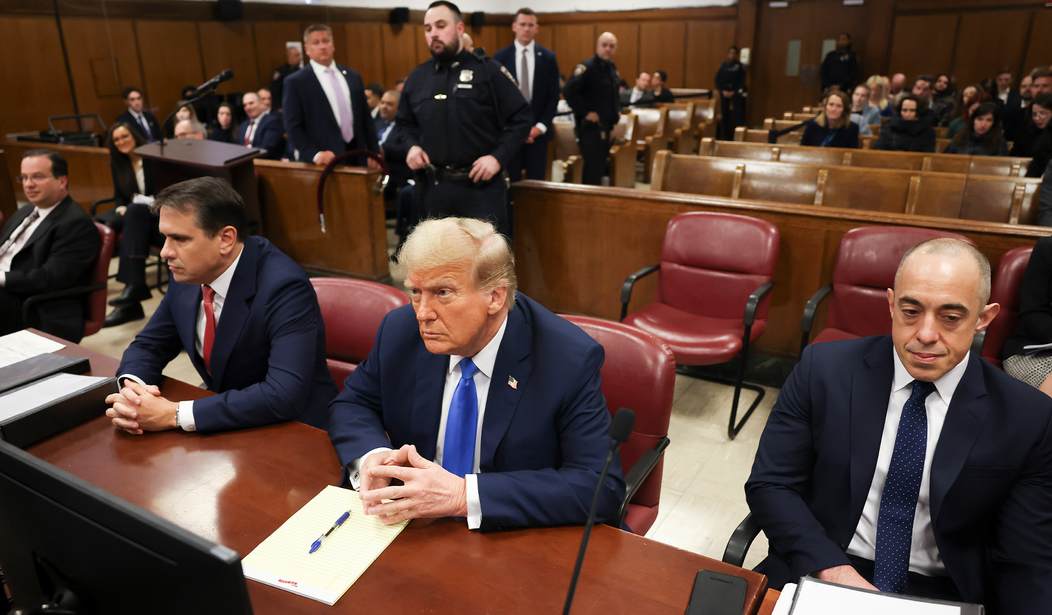
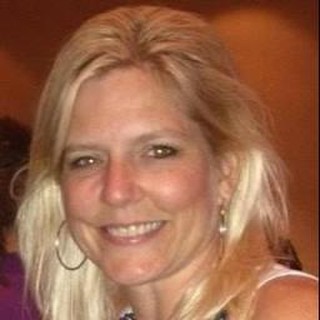
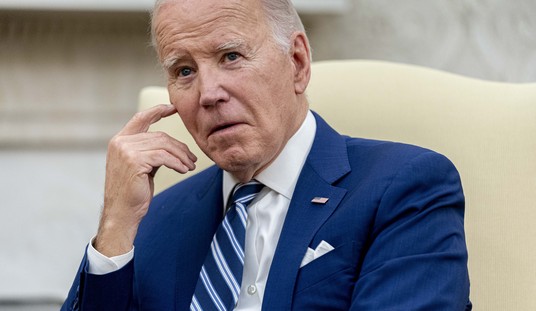
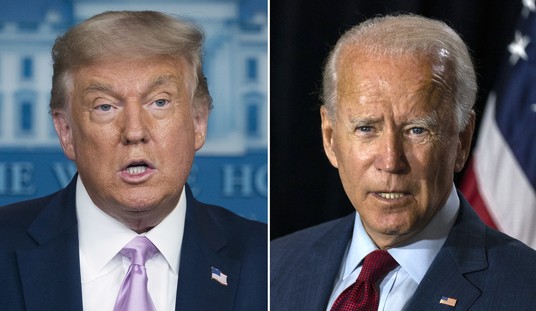
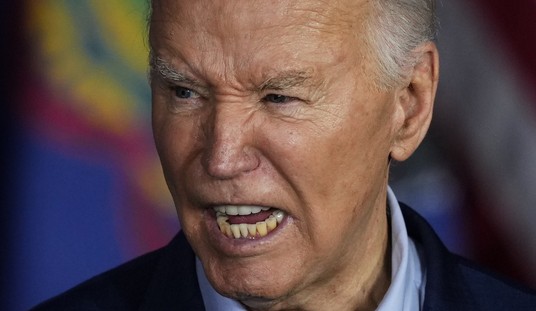
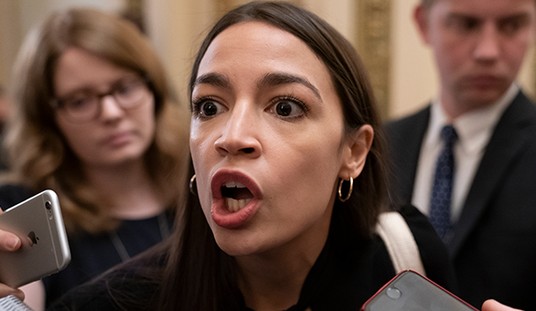
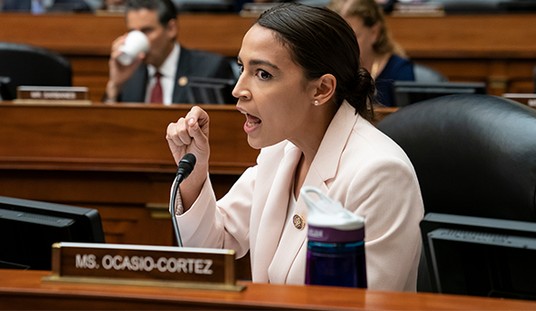
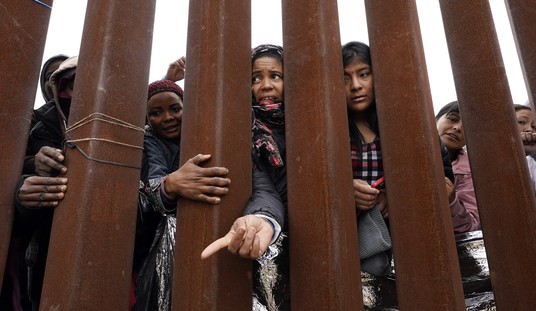
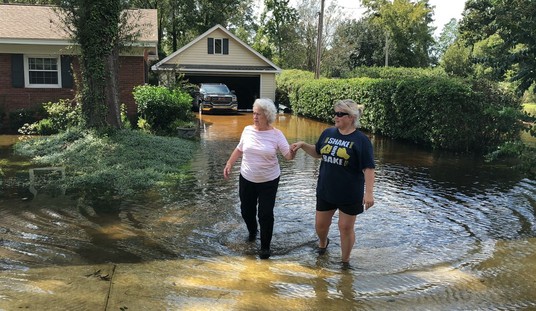
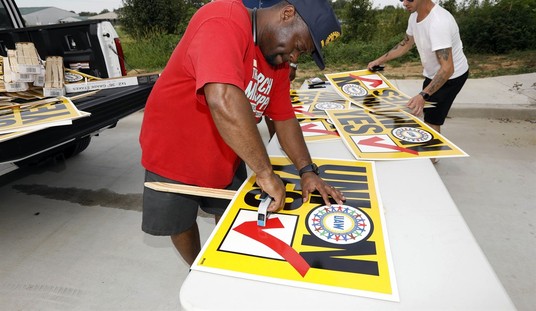



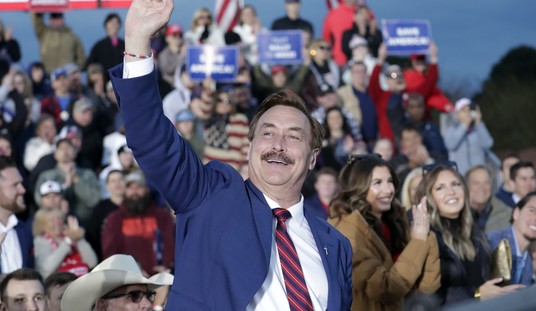
Join the conversation as a VIP Member